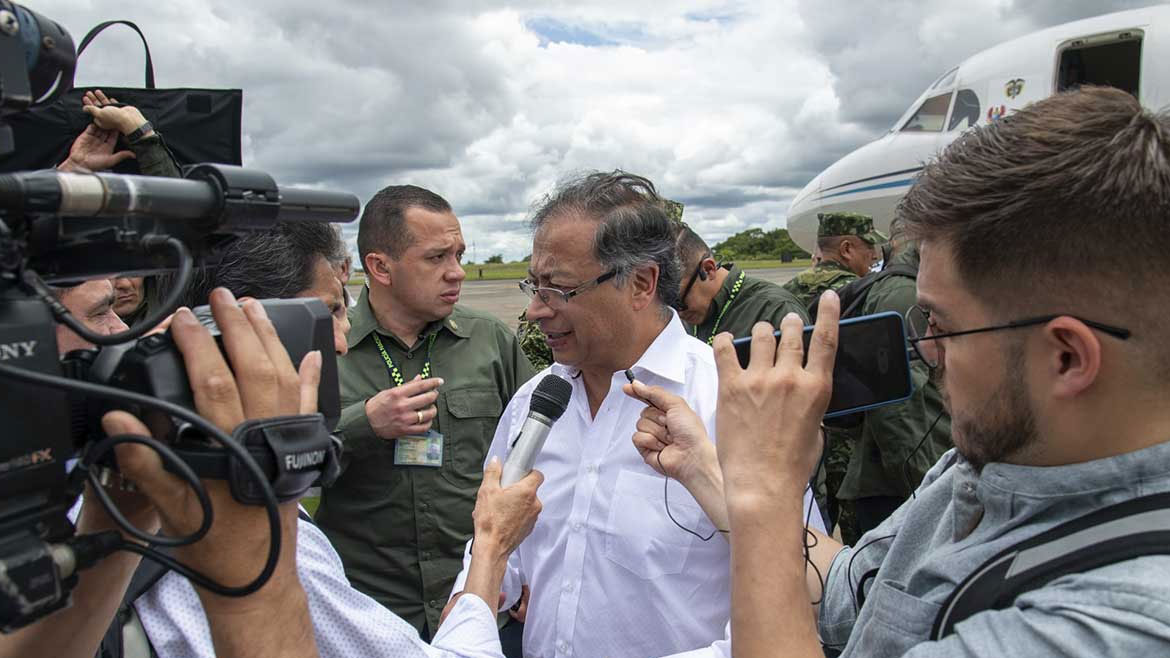Colombia’s President Gustavo Petro on Saturday proposed a multilateral ceasefire with illegal armed groups that agree to negotiate their demobilization and disarmament.
Petro announced the ceasefire proposal on a visit to Ituango, a town in the war-torn north of the Antioquia province where multiple illegal armed groups are active.
A multilateral ceasefire would “allow us to legitimize a definitive end to armed violence, armed conflicts and the situation of armed violence that the country is experiencing,” the president said at a meeting with local authorities.
Petro additionally invited the authorities in regions that suffer violence by illegal armed groups to promote a public debate about the future of their regions.
Colombia’s failing state | Part 1: Antioquia and the art of decapitation
“Total Peace”
The president previously invited Colombia’s multiple illegal armed groups to agree to negotiate their possible demobilization and disarmament as part of his “Total Peace” plan.
This peace policy seeks to expand a peace process that was agreed by former President Juan Manuel Santos and the now-defunct guerrilla group FARC.
Petro’s peace commissioner is currently talking to guerrilla group ELN in an attempt to resume peace talks that were suspended by former President Ivan Duque in 2018.
Multiple illegal armed groups and criminal organizations have expressed their interest in talks, but continue to fight over territorial control.
Armed groups that agree to talk
- National Liberation Army (ELN)
- Gaitanista Self-Defense Forces of Colombia (AUC dissidents)
- Western Coordinating Command (FARC dissidents)
- Southeastern Bloc (FARC dissidents)
Organized crime groups that agree to talk
- La Oficina de Envigado (Medellin)
- Los Pachenca (Santa Marta)
- La Cordillera (Pereira)
From words to actions
Petro said he welcomed “the letters to the government saying they want peace,” but stressed that “words needs to become actions.”
The president said that these actions imply “legitimate negotiators of these groups” that are authorized to negotiate on behalf of the illegal armed groups and criminal organizations.
Once the groups have taken this step, Petro said that the government could reciprocate with “a multilateral cessation of hostilities.”


